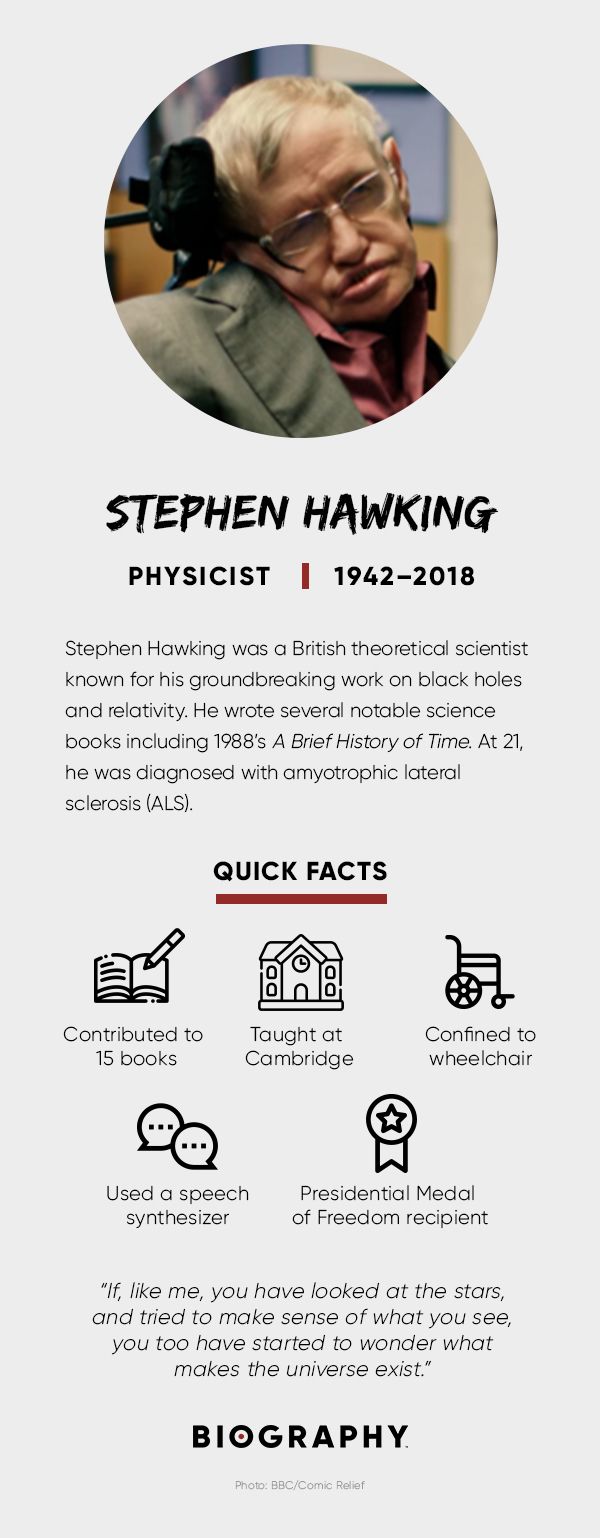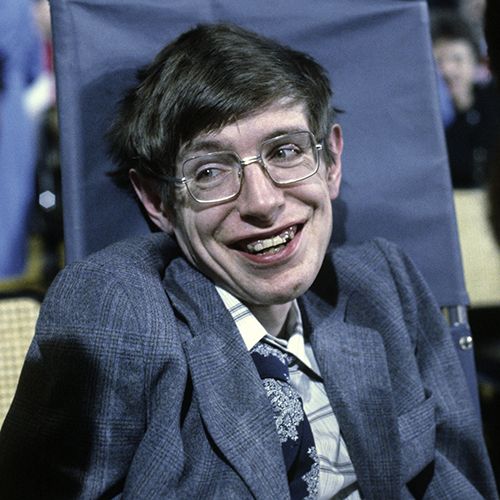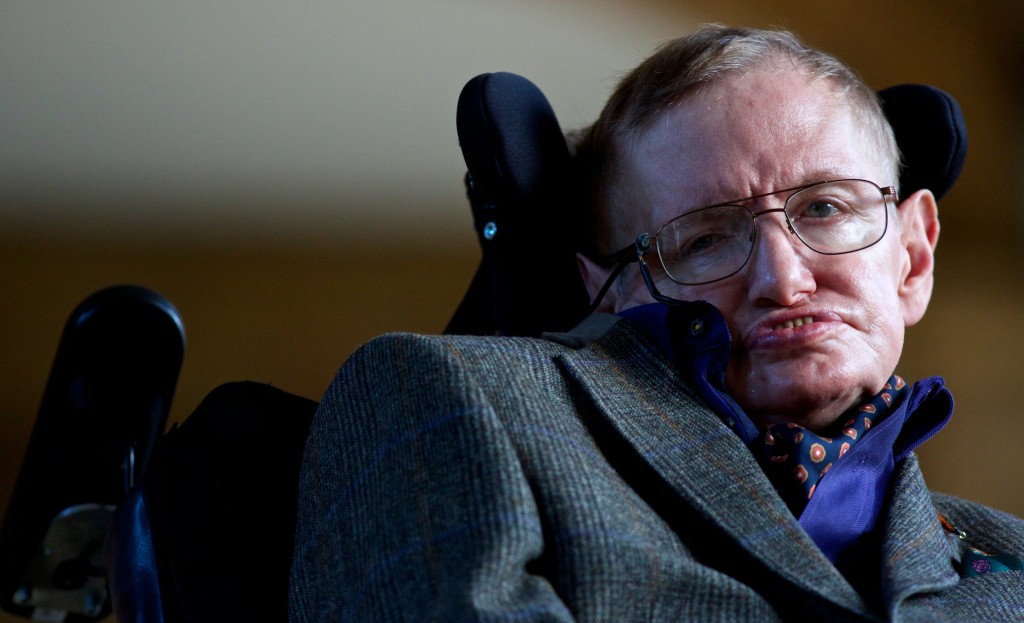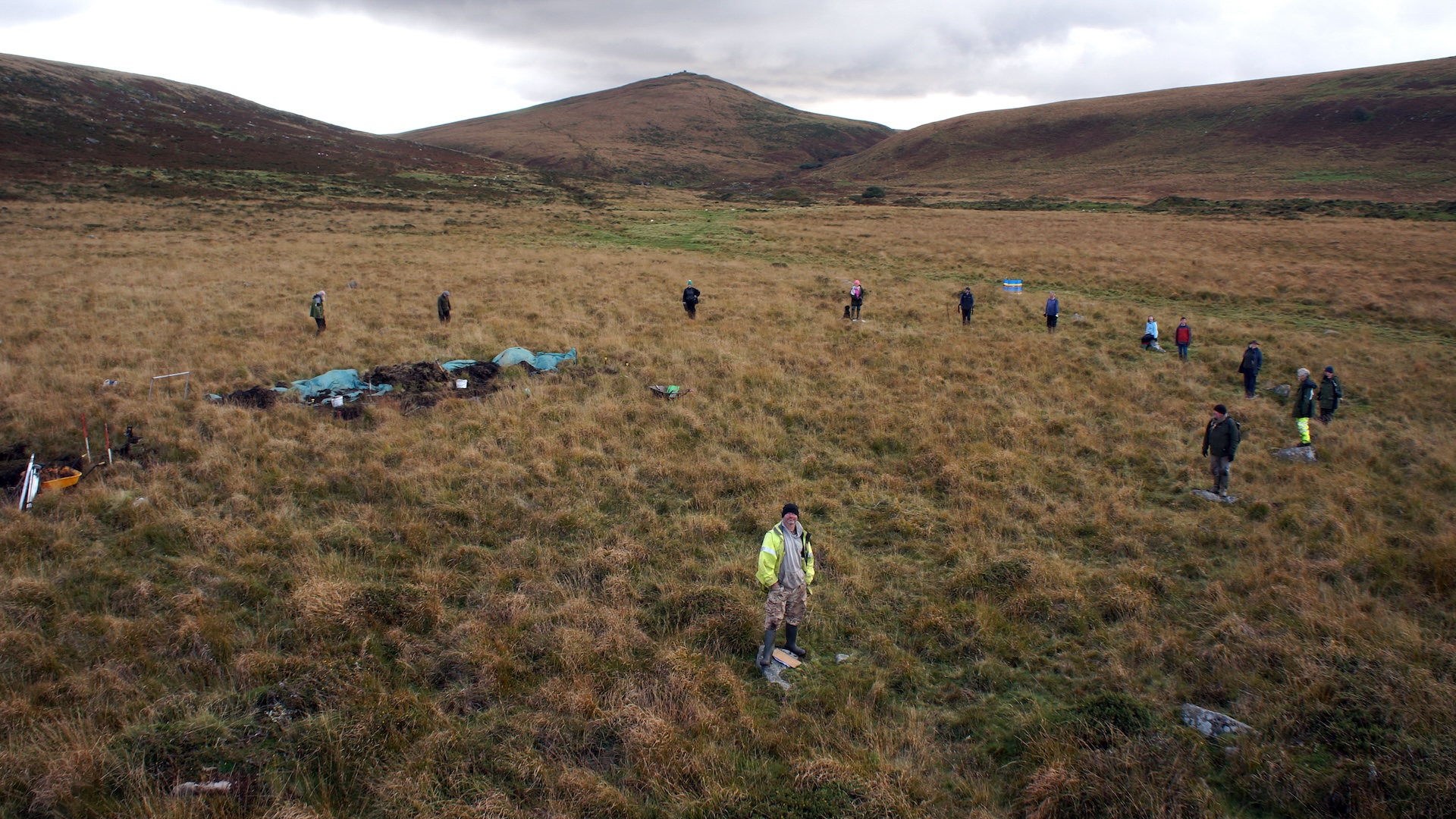Stephen Hawking: A Legacy of Scientific Brilliance and Human Resilience
Introduction to a Remarkable Life
Stephen Hawking, a name synonymous with extraordinary scientific insight and resilience, was one of the most influential theoretical physicists of our time. His journey was marked not only by groundbreaking contributions to our understanding of cosmology and theoretical physics but also by a profound personal story of triumph over adversity. Born on January 8, 1942, in Oxford, England, his intellectual curiosity and passion for understanding the universe established him as a leading figure in science.
Hawking's life demonstrated an unwavering commitment to science despite facing one of the most challenging physical ailments. Diagnosed with Amyotrophic Lateral Sclerosis (ALS) at the age of 21, he was given only two to three years to live. This diagnosis, instead of curtailing his pursuits, seemed to ignite a determined spirit within him. Hawking went on to live 55 more years, during which he authored numerous scientific papers, contributed fundamentally to our comprehension of black holes, and wrote popular science books that brought complex scientific concepts to a broader audience.
Academic Journey and Early Breakthroughs
Stephen Hawking's academic path began at University College, Oxford, where he pursued a degree in physics rather than mathematics, much to his father's chagrin. His natural aptitude for the sciences shone through, though he admitted that he seldom worked hard, relying instead on his remarkable intellect to see him through exams. Despite his rather lackadaisical approach during his undergraduate years, he graduated with a first-class honors degree in natural sciences, securing a place at Cambridge University.
It was at Cambridge, under the guidance of Dennis Sciama, a leading physicist of the time, that Hawking began to explore cosmology in earnest. His Ph.D. thesis challenged the notion of a static universe, proposing instead that it was expanding. Around the same time, alongside mathematician Roger Penrose, he proved that singularities, regions where space and time cease to exist in the traditional sense, were a fundamental aspect of relativity—a discovery with profound implications for the Big Bang theory and black hole dynamics.
The Decade of the Black Hole
This breakthrough laid the foundation for what many refer to as "The Decade of the Black Hole." During the 1970s, Stephen Hawking made some of his most significant contributions to theoretical physics, particularly regarding the nature and characteristics of black holes. Perhaps his most famous discovery was that black holes are not entirely black. In 1974, Hawking demonstrated that these cosmic entities emit radiation due to quantum effects near the event horizon, a phenomenon now known as Hawking radiation.
This was a revolutionary idea that challenged the existing understanding of black holes and sparked new discussions about the intersection of quantum mechanics and general relativity. Hawking radiation suggested that black holes could eventually evaporate and disappear, a conclusion that contrasted sharply with the once-accepted notion that nothing could escape a black hole's grasp. This insight not only expanded our knowledge of black holes but also played a critical role in the search for a unified theory of physics, linking quantum mechanics with Einstein's theory of general relativity—two previously incompatible frameworks of the physical world.
The Public Intellectual
Aside from his contributions to academia, Stephen Hawking was a masterful communicator, keenly aware of the importance of disseminating complex scientific ideas to the general public. His 1988 book, "A Brief History of Time," was a landmark in popular science literature. The book made complex subjects accessible and intriguing for laypersons, contributing to its status as a bestseller with over 10 million copies sold worldwide. It delved into profound questions about the origin and fate of the universe, the nature of time, and the complexity of black holes, all while maintaining an engaging and understandable narrative.
Hawking's skillful writing and public engagements helped to erase some of the barriers between cutting-edge science and the public, inspiring interest and fostering a broader appreciation for the universe's mysteries. His knack for storytelling, combined with a dry wit and an unparalleled depth of knowledge, made him a beloved figure not only to those within the scientific community but also to the wider global audience.
His media presence in interviews, documentaries, and cameo appearances in shows like "The Simpsons" and "Star Trek: The Next Generation" further cemented his status as not just a scientific pioneer, but also a cultural icon. Through these engagements, he managed to convey his enthusiasm for science and demonstrate the power of human courage and intellectual spirit.
In summary, Stephen Hawking's early life and career mark only the beginning of a legacy that transcends the boundaries of human capability. His groundbreaking theories, contributions to science, and remarkable personal story continue to inspire millions across the world. The subsequent sections of this article will delve more into his later works, personal life, and the enduring impact of his legacy.
Continued Contributions and Theoretical Pursuits
As Stephen Hawking progressed through his career, his work continued to captivate the scientific community. Beyond black holes and cosmology, Hawking delved into some of the universe's most enigmatic questions. In the 1980s, he collaborated with James Hartle on the "Hartle-Hawking state," a proposal about the condition of the universe before the Big Bang. This concept suggested that time as a construct did not exist before the Big Bang and thus sidestepped the traditional notion of a singular origin in favor of a "no boundary" condition for the universe. This model provided a fresh lens through which to view the origins of the cosmos, stirring debate and providing fertile ground for further research.
During the late 1980s and 1990s, Hawking's work became increasingly interdisciplinary, bridging physics with philosophy and mathematics. He was deeply engaged in exploring the possibilities of a "Theory of Everything"—a unified framework capable of explaining all physical aspects of the universe. Although such a theory remains elusive, his determination and rigorous inquiries have carved pathways for future generations of physicists.
Moreover, Hawking regularly addressed existential questions about the future of humanity in talks and essays, often contemplating space travel, artificial intelligence, and the survival of our species. His firm belief that humanity must colonize other planets to ensure its survival underscored many of his talks. He warned about the existential risks posed by nuclear war, climate change, and artificial intelligence, emphasizing the necessity of looking towards the stars for our continuation as a species.
A Life Lived Through Adversity
While Hawking's intellectual accomplishments are breathtaking, his personal story is equally inspiring due to the challenges he faced with ALS. The progressive neurodegenerative disease gradually paralyzed him, leaving him reliant on a wheelchair and a computerized voice system for communication. Despite this, Hawking's mind remained as agile as ever, refusing to be restrained by his physical condition.
His resilience in the face of such adversity not only endeared him to the public but also offered a powerful message about human spirit and determination. Often employing humor when discussing his condition, Hawking approached each day with an unyielding pursuit of knowledge. This indomitable spirit was beautifully captured in the biographical film "The Theory of Everything," where Eddie Redmayne's portrayal of Hawking won an Academy Award, bringing even greater awareness to both his scientific triumphs and personal journey.
Hawking's condition also brought attention to the capabilities of technology in aiding those with disabilities. His famed electronic voice generated speech synthesized through a computer linked to facial, cheek, and eye movements—an innovation that symbolized the potential of technology to enhance life quality and communication for individuals with severe physical limitations.
Personal Life and Relationships
Hawking's personal life, like his professional one, was complex and multifaceted. In 1965, shortly before being diagnosed with ALS, he married Jane Wilde, a fellow student at Cambridge. Their relationship was chronicled in their memoir, "Travelling to Infinity: My Life with Stephen," which offered insights into their life together and the challenges they faced.
The marriage produced three children: Robert, Lucy, and Timothy. Despite the strains imposed by Hawking's illness and ever-increasing fame, the family shared a rich intellectual environment and a variety of experiences. However, the pressures eventually led Stephen and Jane to separate in 1990. Hawking later married his caregiver, Elaine Mason, in 1995, a union that ended in divorce in 2006.
His daughter, Lucy, continued the family legacy of inspiring curiosity in the wider world by co-authoring children's science books with her father, aimed at making complex scientific concepts accessible to young readers. These collaborative projects underscore Hawking's lifelong mission—not just to explore the mysteries of the cosmos, but to make them relatable and exciting for everyone.
Legacy and Honors
Stephen Hawking's lifetime of achievements garnered numerous accolades and honors, reflecting the vast impact of his work on science and society. He was appointed Commander of the Order of the British Empire (CBE) in 1982, and later omitted from the Nobel Prize, his contributions largely involving theories that, while revolutionary, remain challenging to empirically prove.
Yet, Hawking's influence extends far beyond awards. He taught and inspired, often reminding his students, "Remember to look up at the stars and not down at your feet." His courage and curiosity leave an indelible impact, motivating people worldwide to pursue science with enthusiasm and integrity.
His passing on March 14, 2018, marked the end of an era in theoretical physics. Cambridge University paid tribute to him, describing him as "an inspiration to millions" and highlighting his seminal role in shaping contemporary cosmology. His ashes were interred at Westminster Abbey between Sir Isaac Newton and Charles Darwin, a fitting testament to his standing in the scientific community.
In the heart of his speeches, books, and public appearances lies a simple but profound message: the universe is a wondrous place filled with mysteries waiting to be discovered. His life’s work teaches us that human curiosity, combined with the resilience to overcome personal hardships, can yield extraordinary insights into the universe and our place within it. This legacy ensures that Stephen Hawking's ideas will continue to influence science and inspire wonder for generations.
Impact on Popular Culture and Media
Stephen Hawking's influence extended beyond the boundaries of academia into popular culture, where he became an iconic figure. His remarkable life and contributions made him an engaging subject for numerous films, documentaries, and media appearances. Notably, his cameo roles in popular television series such as "The Simpsons," "Big Bang Theory," and "Star Trek: The Next Generation" showcased his willingness to blend scientific discourse with humor, bringing his work into living rooms around the world.
These appearances helped demystify the image of a scientist, portraying Hawking as not just a brilliant mind but a cultural luminary who could engage with audiences of all types. His robotic voice became recognizable around the world, symbolizing both advanced technology and his unique approach to life. By participating in popular culture, Hawking succeeded in making science more mainstream, encouraging an interest in theoretical physics among younger generations who might have otherwise found it daunting.
His presence in media also sparked a wider conversation about the role of individuals with disabilities in society. Through his public visibility, Hawking challenged perceptions and stereotypes, demonstrating that physical limitations need not hinder intellectual and personal achievements. His advocacy, whether intentional or otherwise, opened doors for broader representations and dialogues about disability rights and accessibility.
Philosophical and Existential Reflections
Beyond the scientific realm, Stephen Hawking often engaged with philosophical and existential questions about the universe and humanity’s place within it. His writings and interviews frequently addressed profound topics such as the nature of reality, the existence of God, and the fate of the universe. Hawking famously identified as an atheist, viewing the universe's complexity as a natural phenomenon rather than the design of a divine creator. His willingness to tackle such topics invited widespread discussion and debate, both within and outside of scientific circles.
In his later years, he speculated on the potential futures awaiting humanity. He cautioned about the threats posed by unchecked technological advancements, particularly artificial intelligence, expressing concern over AI's capacity to surpass human abilities and potentially compromise our existence. However, he balanced these warnings with an optimistic outlook on human creativity and resilience, believing that our species could overcome significant challenges through innovation and cooperation.
He often stressed the importance of exploring space, envisioning interplanetary colonization as essential for humanity's long-term survival. This vision was grounded in his belief that Earth, as a single-point failure, was vulnerable to catastrophes that could threaten its habitability. Such reflections underscored his belief in looking beyond immediate horizons, encouraging forward-thinking solutions to existential risks.
A Continuing Influence and Inspiration
Even posthumously, Stephen Hawking's influence continues to be felt in scientific communities and educational spheres around the globe. His research papers, lectures, and popular science writings remain a rich source of knowledge and inquiry for physicists and students eager to understand the universe. Institutions, initiatives, and awards established in his honor foster continued public engagement with science and support upcoming generations of thinkers and problem-solvers.
Hawking's commitment to education and outreach is reflected in the numerous scholarships and programs named after him, aimed at promoting diversity and creativity in science. His legacy endures through these endeavors, ensuring that curiosity and the pursuit of knowledge are accessible to all, regardless of background or circumstance.
In educational curricula, Hawking's work and life story are frequently included to inspire young minds, teaching not just the principles of physics but also resilience and determination in confronting challenges. His ability to render the enigmatic accessible has left an indelible mark on educational philosophies, championing an approach to learning that is as much about critical thinking as it is about absorbing facts.
Concluding Thoughts
Stephen Hawking was not only a groundbreaking theoretical physicist but also a global icon whose life journey encouraged millions to ponder the vast mysteries of the universe. His relentless pursuit of knowledge despite severe physical limitations testifies to the power of human will and intellect. Through his theories, lectures, and writings, Hawking contributed profoundly to our understanding of the cosmos, redefining how we perceive time, space, and the fundamental laws governing our existence.
Hawking's legacy is multifaceted, encompassing significant scientific contributions, efforts to make science more accessible, and his embodiment of resilience in the face of adversity. He demonstrated that formidable challenges could be transformed into opportunities for intellectual and personal growth. By continuing to look outward while reflecting inward, Hawking posed questions that will guide science and philosophy for years to come.
His enduring influence encourages all of us to embrace curiosity and courage, to seek knowledge, and to confront the unknown with the same pioneering spirit that he exhibited throughout his life. Stephen Hawking's work assures us that while we may be small players in the cosmic theater, our capacity to wonder and explore is boundless, just as the universe itself appears to be.












Comments